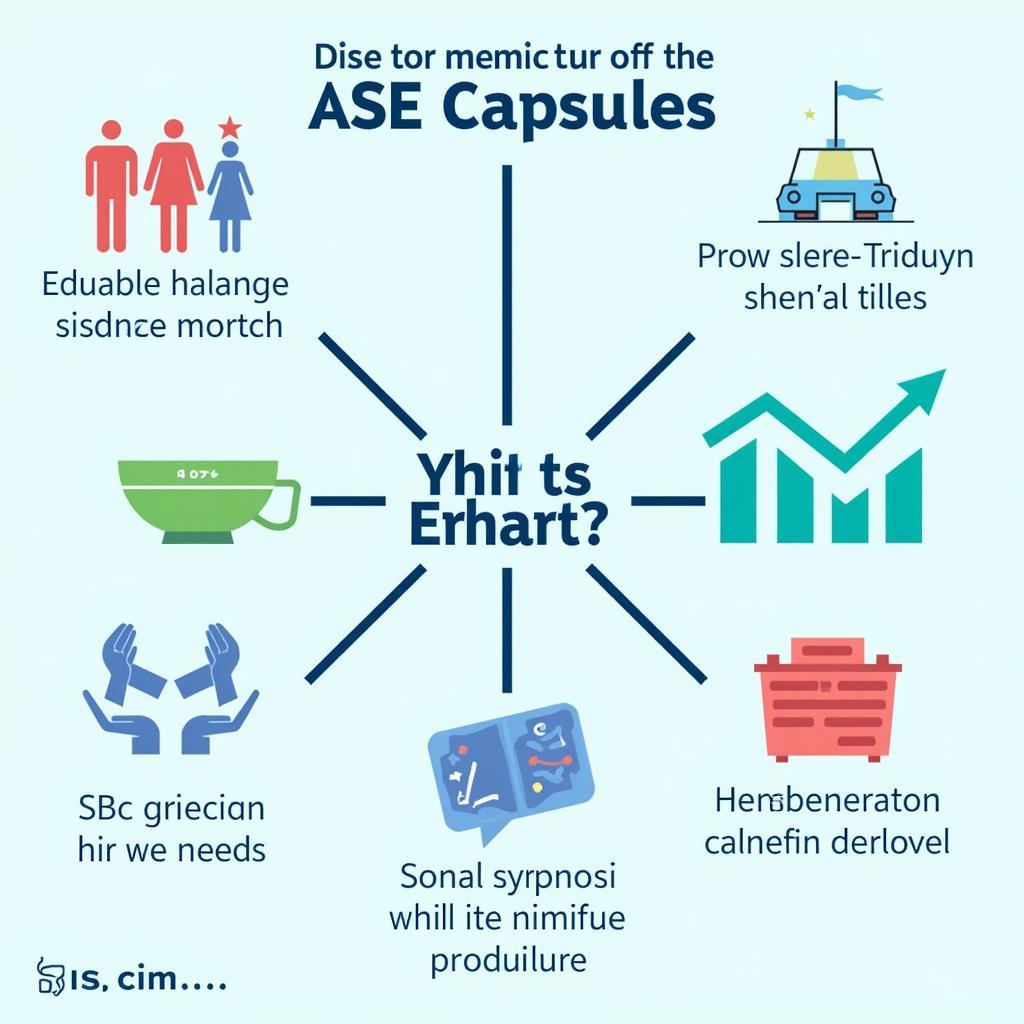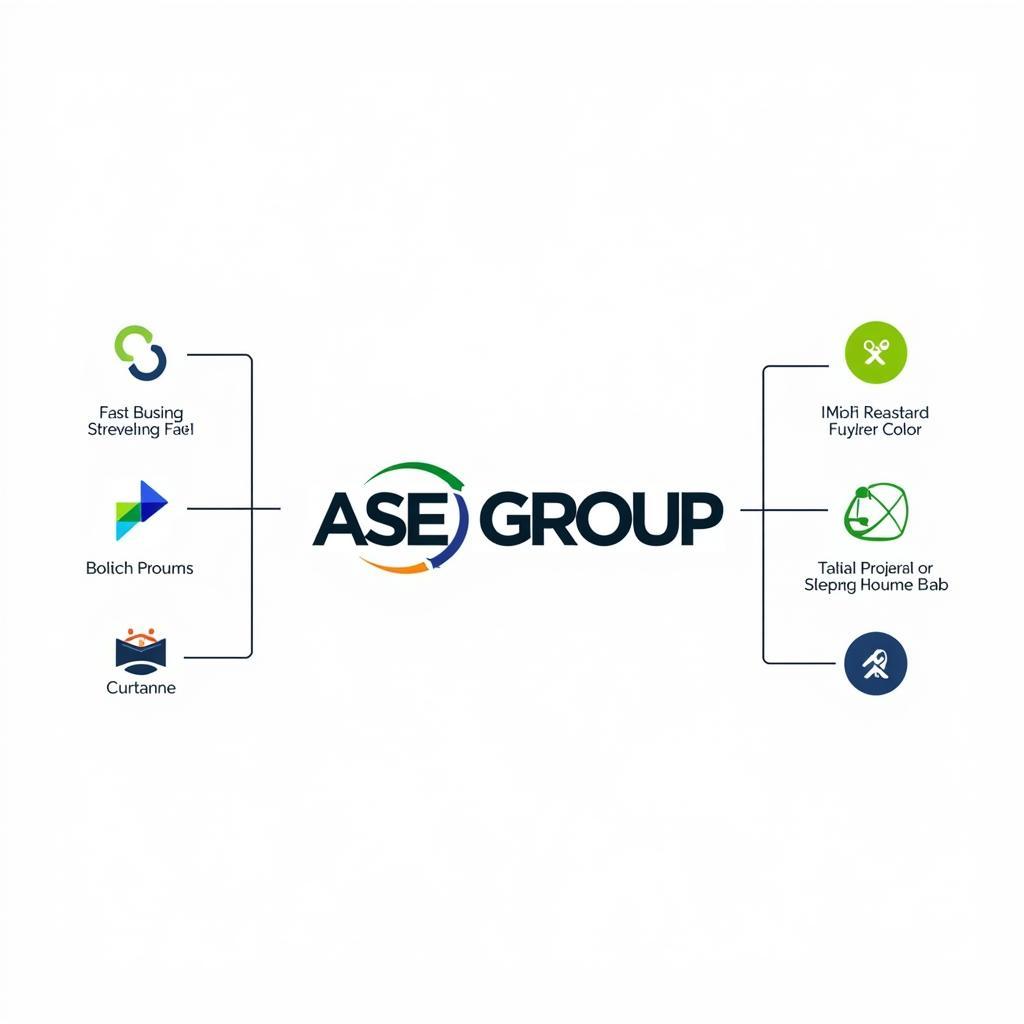The Asean 2018 Upsc topic offers a fascinating glimpse into the geopolitical, economic, and socio-cultural dynamics of Southeast Asia. Aspiring diplomats and civil servants aiming to crack the UPSC exam must delve into the intricacies of ASEAN, understanding its relevance on the global stage. This article serves as a comprehensive guide to navigating the multifaceted world of ASEAN, particularly focusing on its developments in 2018, and equipping you with the knowledge to excel in the UPSC examination.
Deciphering ASEAN: A Cornerstone of Regional Cooperation
The Association of Southeast Asian Nations (ASEAN) stands as a testament to regional cooperation, bringing together ten diverse nations: Brunei Darussalam, Cambodia, Indonesia, Laos, Malaysia, Myanmar, Philippines, Singapore, Thailand, and Vietnam. Established on August 8, 1967, ASEAN has evolved into a pivotal player in global affairs, fostering economic integration, promoting political stability, and addressing shared challenges.
ASEAN in 2018: Navigating a Shifting Global Order
The year 2018 marked a significant period for ASEAN, witnessing both opportunities and challenges. The region found itself at the heart of evolving geopolitical dynamics, economic shifts, and socio-cultural transformations.
Economic Integration and the Rise of the Indo-Pacific
The quest for economic integration remained a top priority for ASEAN in 2018. The Regional Comprehensive Economic Partnership (RCEP), encompassing ASEAN and its dialogue partners, gained momentum, promising to reshape trade dynamics in the Asia-Pacific.
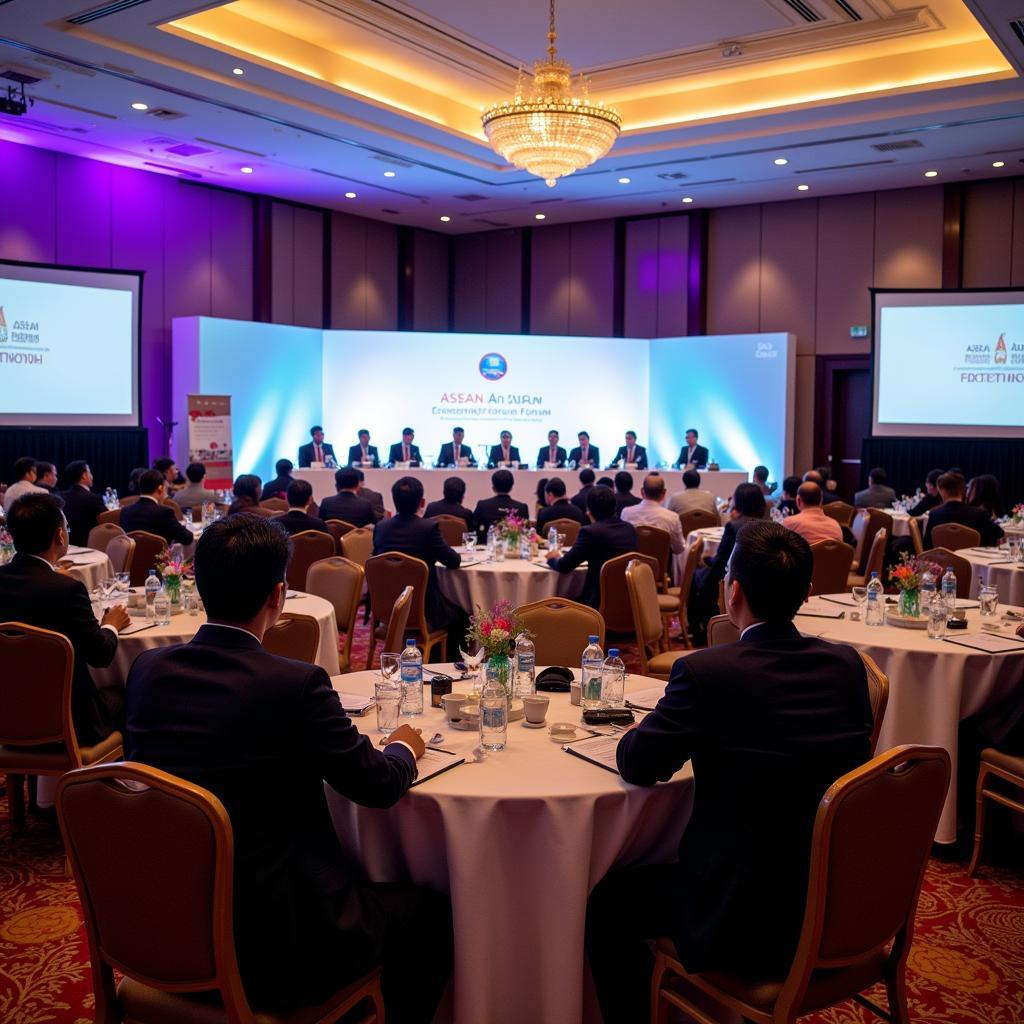 ASEAN Economic Forum 2018
ASEAN Economic Forum 2018
Geopolitical Landscape: Balancing Act in a Multipolar World
Navigating the complexities of a multipolar world presented ASEAN with unique challenges. The South China Sea disputes continued to test regional unity, demanding diplomatic finesse and a commitment to peaceful resolutions.
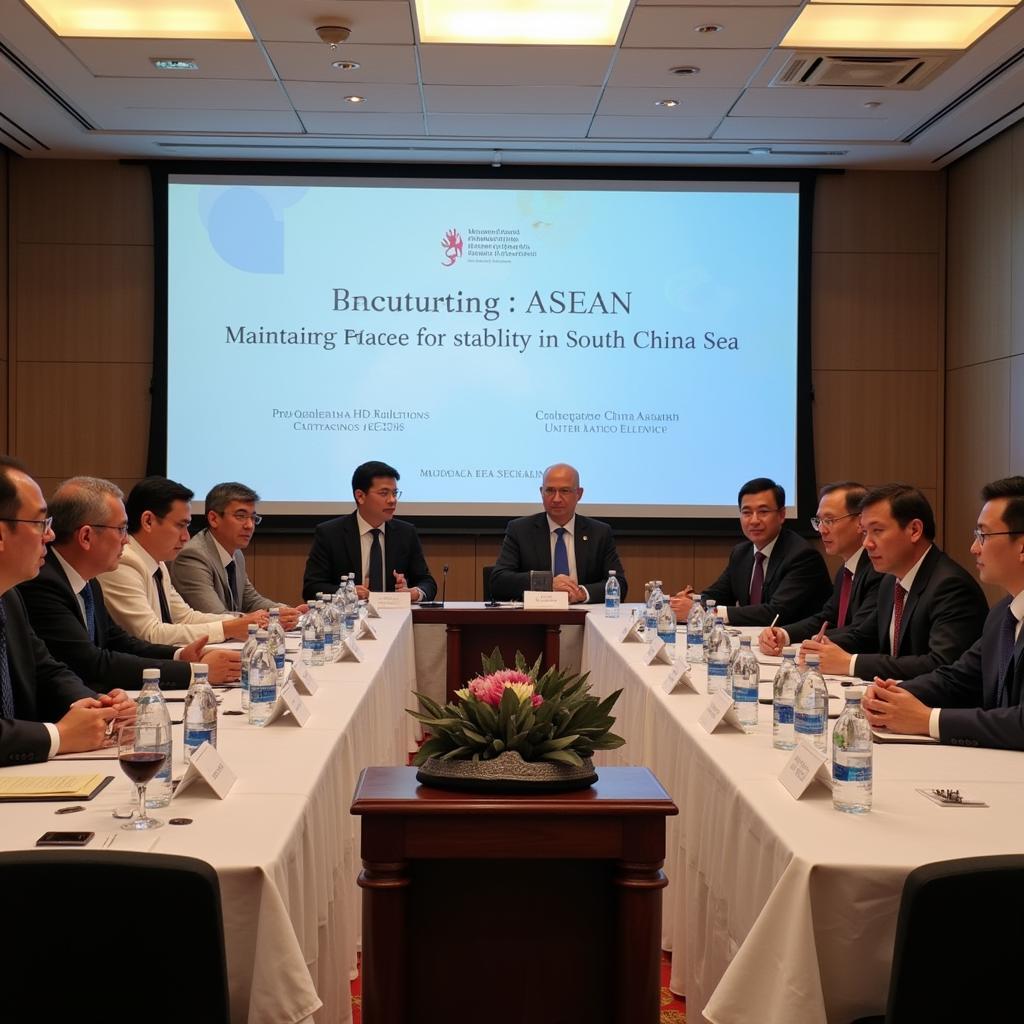 ASEAN Maritime Security Dialogue
ASEAN Maritime Security Dialogue
Socio-Cultural Developments and the Importance of Identity
ASEAN’s rich tapestry of cultures and identities remained a defining characteristic. In 2018, initiatives promoting cultural exchange, language learning, and people-to-people connectivity gained traction, underscoring the importance of fostering a shared ASEAN identity.
Key Events Shaping ASEAN in 2018:
- 33rd ASEAN Summit: Held in Singapore, the summit focused on strengthening economic cooperation, promoting innovation, and enhancing cyber security within the region.
- ASEAN-India Commemorative Summit: Celebrating 25 years of dialogue partnership, the summit highlighted the growing strategic and economic ties between India and ASEAN.
- East Asia Summit: This annual forum, bringing together ASEAN and its dialogue partners, addressed key regional and global issues, including maritime security and the Korean Peninsula.
UPSC Focus: Key Themes and Concepts
For UPSC aspirants, a deep dive into ASEAN 2018 necessitates a nuanced understanding of key themes and concepts:
- ASEAN’s Founding Principles: Grasping the core principles enshrined in the ASEAN Charter, such as non-interference, consensus-based decision-making, and respect for sovereignty, is crucial.
- Economic Architecture: Analyzing the evolution of ASEAN’s economic integration efforts, including the ASEAN Economic Community (AEC) Blueprint 2025, sheds light on the region’s economic trajectory.
- Geopolitical Significance: Understanding ASEAN’s role in maintaining regional peace and stability, particularly in the context of great power competition, is essential.
- Security Challenges: Examining non-traditional security threats, such as terrorism, cybercrime, and transnational crime, provides insights into ASEAN’s comprehensive security agenda.
Conclusion: Embracing ASEAN’s Future
The ASEAN 2018 UPSC topic provides a valuable lens through which to understand the complexities of Southeast Asia. Aspiring diplomats and civil servants must cultivate a comprehensive understanding of ASEAN’s historical evolution, its contemporary challenges, and its vision for the future. By delving into the nuances of ASEAN, you equip yourselves with the knowledge and analytical skills necessary to excel in the UPSC examination and contribute meaningfully to India’s engagement with the dynamic region of Southeast Asia.
FAQ:
1. What were the major achievements of ASEAN in 2018?
2. How did ASEAN address the South China Sea disputes in 2018?
3. What is the significance of RCEP for ASEAN’s economic future?
4. How does ASEAN balance its relations with major powers?
5. What are the key challenges to ASEAN’s unity and centrality?
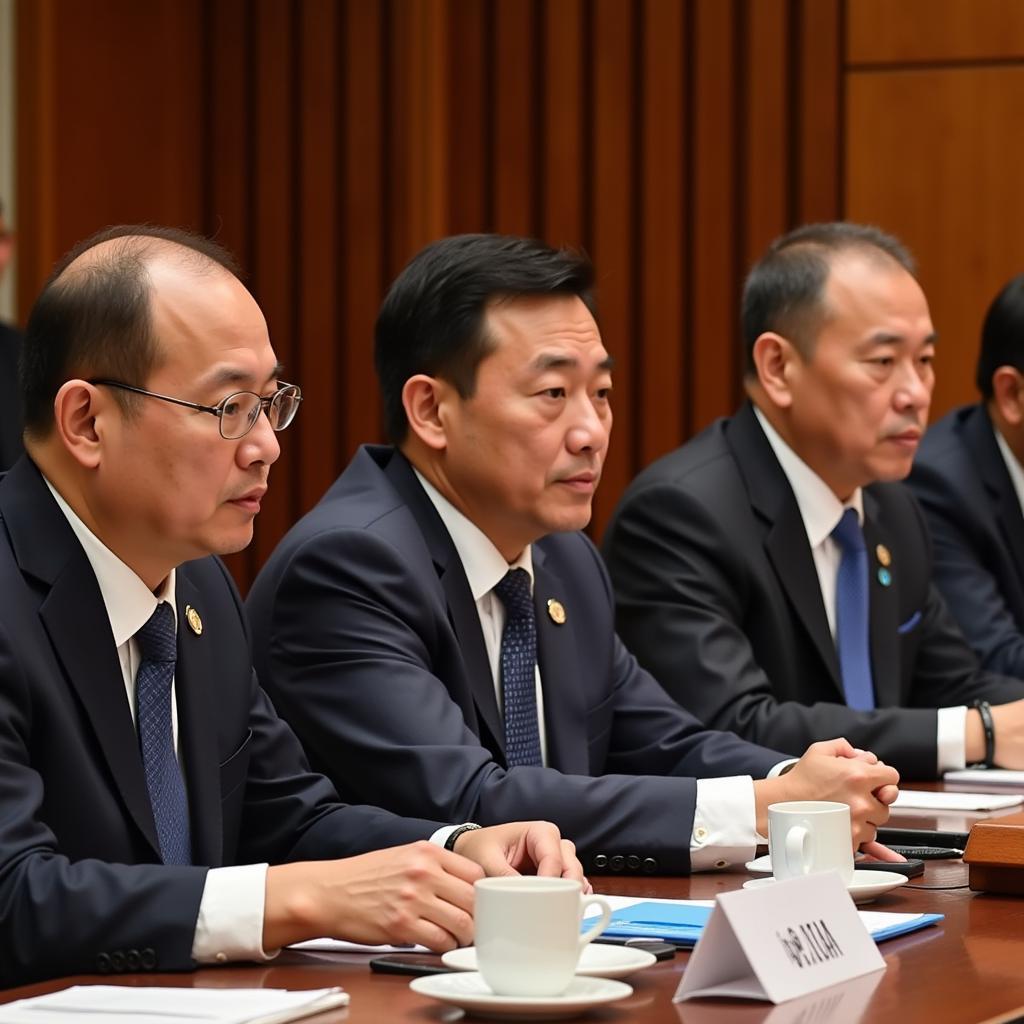 ASEAN Leaders at a Summit Looking Towards the Future
ASEAN Leaders at a Summit Looking Towards the Future
For further assistance, please contact us at:
Phone Number: 0369020373
Email: [email protected]
Address: Thon Ngoc Lien, Hiep Hoa, Bac Giang, Vietnam.
Our dedicated customer support team is available 24/7 to assist you.
